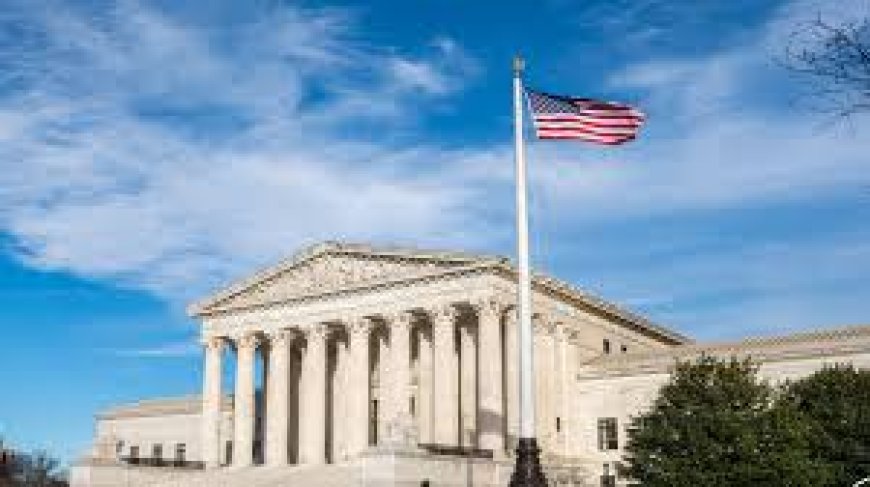Immigrants scramble for clarity after US Supreme Court birthright ruling
A recent Supreme Court ruling narrowing birthright citizenship has triggered confusion among immigrants, legal experts, and policymakers. Read the full impact analysis.

Washington, D.C. – A recent U.S. Supreme Court ruling on birthright citizenship has sent shockwaves through immigrant communities across the country. The landmark decision, delivered in a 5-4 split, has raised urgent questions about the rights of children born to undocumented immigrants on U.S. soil, igniting both legal uncertainty and political controversy.
The ruling does not fully overturn the precedent set by the 1898 case United States v. Wong Kim Ark, which affirmed citizenship for most individuals born in the country under the 14th Amendment. However, the Court’s latest interpretation narrows the scope of that protection, especially for children born to parents who are not "lawfully admitted" into the country.
The Ruling and Its Immediate Impact
In its opinion, the majority of justices emphasized that the language of the 14th Amendment—granting citizenship to “all persons born or naturalized in the United States, and subject to the jurisdiction thereof”—was never intended to include children of individuals residing illegally.
Chief Justice John Roberts, writing for the majority, argued, “Jurisdiction in the constitutional sense demands more than mere presence. It entails legal allegiance, which cannot be extended to those whose presence is unauthorized and transitory.”
This interpretation leaves an estimated 300,000 children born annually to undocumented immigrants in legal limbo. Questions are mounting over their access to healthcare, education, and the ability to obtain official documentation like Social Security cards and passports.
Legal Confusion, Bureaucratic Bottlenecks
Lawyers and immigrant advocacy groups are reporting a surge in queries and cases following the decision. “We’re seeing a tidal wave of confusion. People are calling in tears, unsure if their children will now be rendered stateless,” said Miriam Gonzalez, legal director at the National Immigration Law Center (NILC).
Gonzalez added that until the Department of Homeland Security and state agencies issue updated guidance, there will be significant bureaucratic hurdles. “Hospital records, birth certificates, school registrations—everything is up in the air.”
Immigration attorneys also worry about retroactivity. Although the ruling does not explicitly invalidate citizenship already granted, there are fears that future legal challenges might target adults born to undocumented parents decades ago.
Divided Political Response
The ruling has become a flashpoint in the 2024 election cycle. Republican lawmakers have largely praised the decision, arguing it aligns with long-standing efforts to curb illegal immigration.
“This is a major victory for the rule of law,” said Senator Tom Cotton (R-Ark.), who is backing new legislation that would formally codify the narrowed interpretation.
Democrats, by contrast, are calling the decision a dangerous rollback of civil liberties. “This undermines constitutional guarantees that have stood for over a century,” said Rep. Alexandria Ocasio-Cortez (D-N.Y.). “We will fight this injustice through every legislative and judicial channel available.”
Markets React Cautiously
Though the ruling’s economic impact remains uncertain, analysts say it could have long-term implications for labor markets and demographic trends.
“Immigration has been a cornerstone of U.S. labor supply, especially in low-skilled sectors,” said Ben Hoffman, Senior Economist at the Peterson Institute for International Economics. “Any policy that creates disincentives for immigrant families to remain or settle in the U.S. could accelerate workforce shortages, especially in agriculture, construction, and eldercare.”
The ruling also introduces new risk variables for businesses. “Companies now face heightened liability when hiring or servicing individuals whose legal status may come under scrutiny,” warned Maria Li, Director of Compliance at a major multinational staffing firm.
Investor Outlook: Cloudy but Watchful
For investors, the ruling adds a layer of geopolitical risk, particularly in sectors dependent on migrant labor or foreign consumer bases.
1. Real Estate: Urban housing markets, particularly in immigrant-heavy states like California and Texas, could see a cooling effect if immigrant communities feel unsafe or opt to relocate.
2. Consumer Goods: Retailers and service providers may witness a shift in consumer behavior as uncertainty over documentation and status impacts spending patterns.
3. Healthcare: Hospitals, especially public facilities, may see an influx of legal challenges and administrative backlogs relating to birth documentation and eligibility for services.
However, some analysts see potential long-term tailwinds for legal-tech firms and advocacy organizations that assist with citizenship verification and legal aid. “Demand for document authentication, digital identity solutions, and legal platforms could surge in response to the ruling,” suggested Priya Nambiar, Equity Analyst at MorganFin.
Global Repercussions
Internationally, the decision is being watched closely, especially in nations with large diasporas in the U.S. “This will complicate U.S. relations with countries like Mexico, India, and the Philippines, where remittances and diaspora status are key socio-economic pillars,” said Dr. Reena Patel, a senior fellow at the Center for Global Development.
Embassies are already receiving requests for clarification and support. In a statement, Mexico’s Foreign Ministry said it is “reviewing legal pathways to support affected nationals and ensuring that international norms regarding citizenship and statelessness are respected.”
What Comes Next
The Biden administration has signaled that it may challenge aspects of the ruling or seek legislative remedies to reassert birthright citizenship protections. But with Congress sharply divided, immediate action seems unlikely.
In the meantime, immigrant families and advocates continue to scramble for clarity. “We urge the federal government to move swiftly and humanely to address the uncertainty this ruling has created,” said NILC’s Gonzalez. “This isn’t just a legal issue—it’s a moral one.”
What's Your Reaction?
 Like
0
Like
0
 Dislike
0
Dislike
0
 Love
0
Love
0
 Funny
0
Funny
0
 Angry
0
Angry
0
 Sad
0
Sad
0
 Wow
0
Wow
0












































































